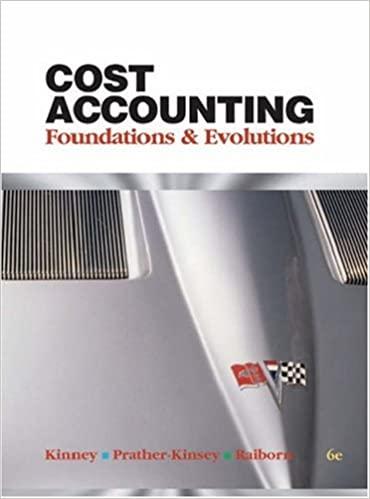(joint products: by-product) Georgia Peach runs a fruit-packing business in central Georgia. The firm buys peaches by...
Question:
(joint products: by-product) Georgia Peach runs a fruit-packing business in central Georgia. The firm buys peaches by the truckload in season and sep¬ arates them into three categories: premium, good, and fair. Premium can be sold as is to supermarket chains and specialty gift stores. Good is sliced and canned in light syrup and sold to supermarkets. Fair is considered a by¬ product and is sold to Yum-Yum Company, which processes it into jelly.
Georgia Peach has two processing departments: (1) Cleaning and Sorting (joint cost) and (2) Cutting and Bottling (separate costs). During the month, the company paid $15,000 for one truckload of fruit and $300 for labor to sort the fruit into categories. Georgia Peach uses a predetermined overhead rate of 50 percent of direct labor cost. The following yield, costs, and final sales value resulted from the month’s truckload of fruit.

a. Diagram the problem similar to diagrams in Exhibits 11-4 and 11-9.
b. Determine the joint cost.
C. Allocate joint cost using the approximated net realizable value at split-off method, assuming that the by-product is recorded when realized and is shown as Other Income on the income statement.
d. Using the allocations from part (c), prepare the necessary entries assum¬ ing that the by-product is sold for $4,500 and that all costs were as shown.
e. Allocate joint cost using the approximated net realizable value at split-off method, assuming that the by-product is recorded using the net realiz¬ able value approach and that the joint cost is reduced by the net realiz¬ able value of the by-product.
f. Using the allocations from part (d), prepare the necessary entries, as¬ suming that the estimated realizable value of the by-product is $4,000. LO1.
Step by Step Answer:

Cost Accounting Foundations And Evolutions
ISBN: 9780324235012
6th Edition
Authors: Michael R. Kinney, Jenice Prather-Kinsey, Cecily A. Raiborn





